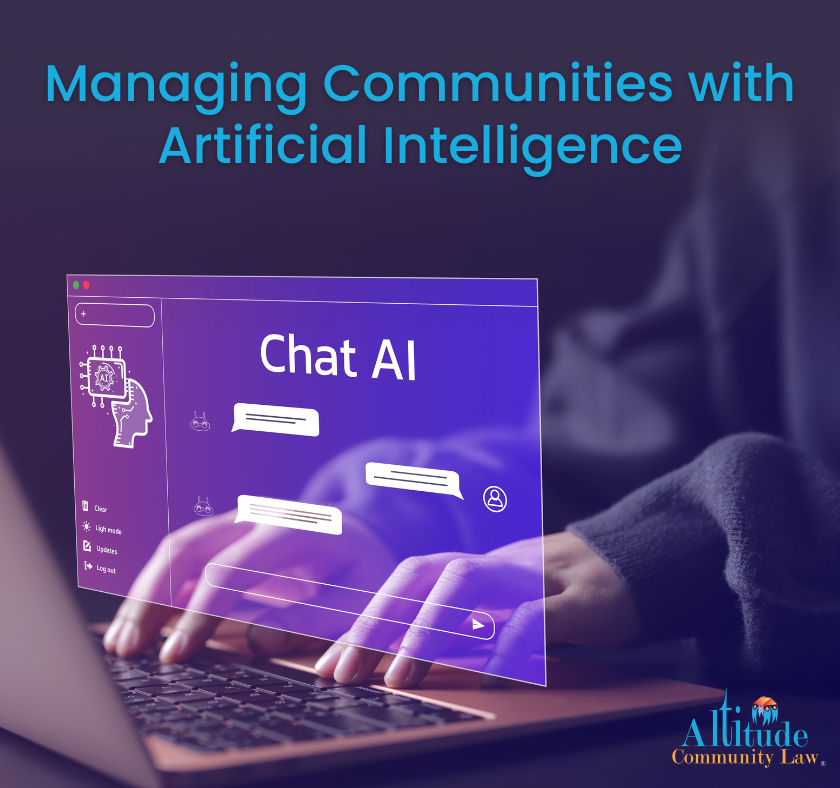
We are living in a technologically-advanced world where the use of artificial intelligence (AI) has become commonplace in many industries, including community management. AI can generate content with just a few clicks, enticing users with its fast and cheap convenience. While there is nothing wrong with using AI to assist associations in their management duties, there are a few pitfalls to watch out for.
- Legal Noncompliance. Association notices such as violation warnings, fine assessments, and meeting announcements are governed not only by Colorado law, but also the association’s governing documents. AI does not inherently understand the legal requirements for notices. If an AI-generated notice omits a required element, this could render the entire notice invalid. Worse, it may expose the association to legal challenges for noncompliance.
- Selective or Inaccurate Enforcement. Consistency is a cornerstone of fair association governance in order to avoid selective enforcement. Any inconsistencies found in an AI-generated document can lead to accusations of selective enforcement, which may open the door to legal disputes. Also, AI is only as accurate as the prompts it receives, which can lead to discrepancies between notices.
- Confidentiality and Data Privacy Issues. Drafting an association notice often involves personal information. Using a publicly-available AI tool to generate notices could result in unintended sharing of this sensitive information, especially if the AI system stores or learns from user inputs. This can be a serious concern when it comes to privacy laws and homeowner trust. Public-facing AI platforms typically include terms of use that allow the company to use inputs for training purposes, which is something to consider before pasting confidential information into a chat box.
- No Accountability. When an AI-generated notice causes a problem, there is no one to hold responsible. Most AI tools explicitly state that they do not provide legal advice, and they are not accountable for the consequences of their output. This means if a notice leads to a lawsuit, the association bears the full burden of the mistake. Attorneys, managers, and board members have liability insurance for this exact reason.
- Interpretation Issues. Every association operates under its own set of governing documents, which includes the declaration, bylaws and rules and regulations. AI tools do not have access to your association’s governing documents and, even then, AI may not interpret them correctly. These documents are often complex and specific, and require human interpretation. AI is not always right, and will fill in any gaps with its own interpretations. For instance, there have been instances of AI tools citing legal authorities which do not even exist.
AI can be a helpful tool in operating a community association, but it should never be used to draft official notices without human review.
Before sending any association notice, make sure it has been reviewed by:
- A licensed community association manager (CAM);
- A member of the board familiar with the rules; or
- A legal professional if needed.
Remember, technology is a tool—not a substitute for responsible governance.
Please contact an Altitude attorney at 303.432.9999 or [email protected] if you have any questions on the above or any other legal needs for your association.